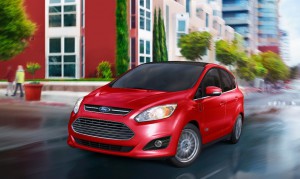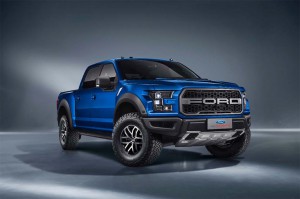One in four of the vehicles Ford Motor Co. hope to sell in China by the end of the decade will use some form of battery-based powertrain, company officials said during the Beijing Motor Show.
Ford has already announced plans to invest $4.5 billion in its electrification program, CEO Mark Fields saying the goal is to have 13 hybrids, plug-ins and pure battery-electric vehicles in the Blue Oval and Lincoln line-ups by 2020.
But China could become the maker’s largest market for these green vehicles, a shift that reflects government pressure at least as much as consumer demand in the world’s largest automotive market. Hoping to deal with endemic smog problems, Beijing regulators are using both carrot and stick – incentives and new mandates – to get the auto industry to ramp up production of battery-based vehicles.
(For more on Ford’s investment in electrified vehicles, Click Here.)
“By 2020, we see 10 to 25 percent of our mix being electrified, probably a majority of that being in the hybrid range and with the fastest growth in plug-in hybrids,” Ford China CEO John Lawler said during an appearance at the Beijing Motor Show.
Lawler noted that Chinese regulators are not just pushing for cleaner vehicles, but they also have what he described as the world’s “most aggressive” push to improve fuel economy. Along with trying to curb urban smog problems, the People’s Republic wants to trim its costly dependence upon foreign oil.
Ironically, one of the biggest announcements Ford is making at the Beijing show this year is the introduction of its F-150 Raptor, the most muscular version of its full-size pickup truck. But the automaker also is getting set to launch a hybrid version of the Mondeo – the global name for the Fusion – later this year. The C-Max Energi, a plug-in version of the Ford microvan, will be introduced in early 2017.
(Ford plowing $1.6 bil into Michigan, Ohio plants. Click Here for the full story.)
Ford is by no means alone. Virtually every major foreign automaker operating in China has been laying out plans for electrification, including key rivals like General Motors, Volkswagen and Toyota. Domestic Chinese manufacturers are also pressing into battery technology, and the shift could be particularly good for several brands, such as BYD, that are primarily focused on electric vehicles.
Toyota officials this week complained, in fact, that the Chinese government appears to be tailoring its green car mandates to favor domestic brands. Qualified vehicles can earn buyers as much as $17,500 in government incentives. They also can sidestep rules that limit the number of vehicles that can be registered in major cities like Beijing each month.
While demand for electrified vehicles took a sharp tumble in the U.S. last year, sales rose sharply in China, making that the single largest market in the world for hybrids, plug-ins and battery-electric vehicles.
(VW electrifies Beijing with T-Prime Concept GTE. Click Here to check it out.)




Not to rain on your parade but so-called green vehicles run by battery Are not really green. First of all just manufacturing the batteries is harmful to the environment for mining the metals and the industrial processes to build them and then recycling those metals. Furthermore China produces most of their power by burning oh heavens no coal and coal generated power is what charges the batteries therefore what’s so great about your green program…makes people feel good I suppose.
A PLUG-IN RAPTOR WOULD BE AWE INSPIRING!!!